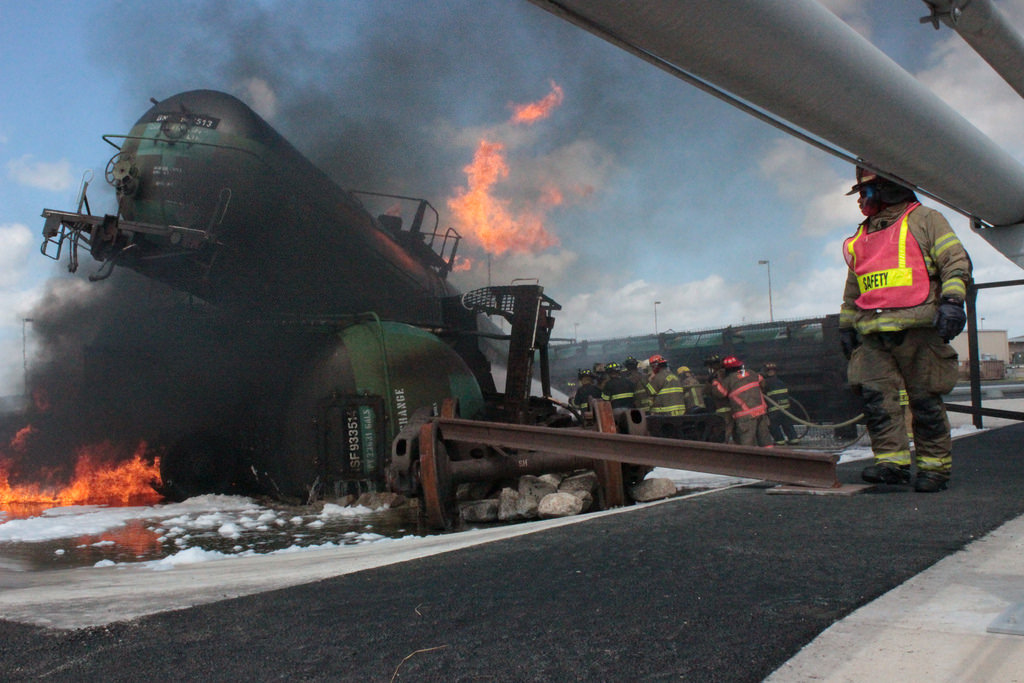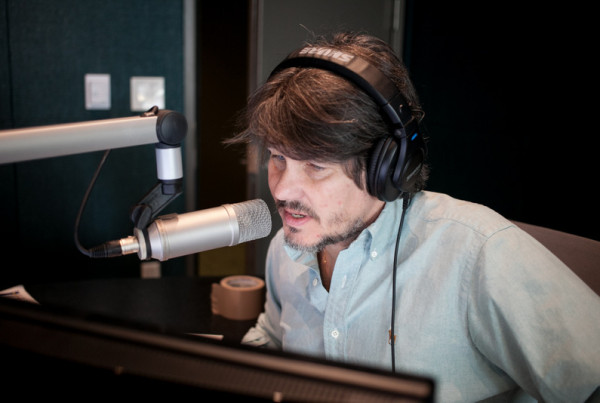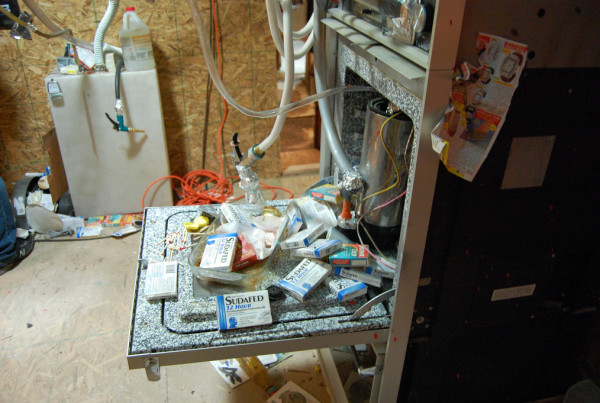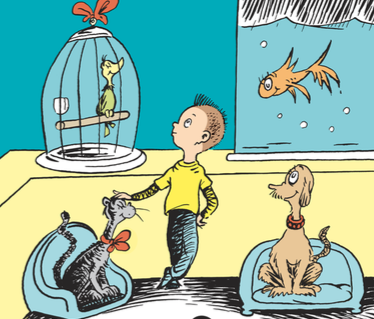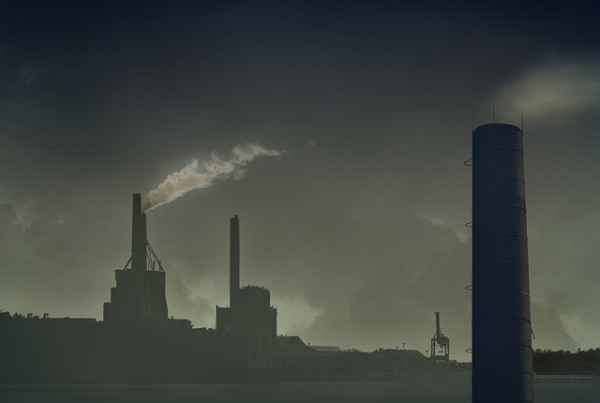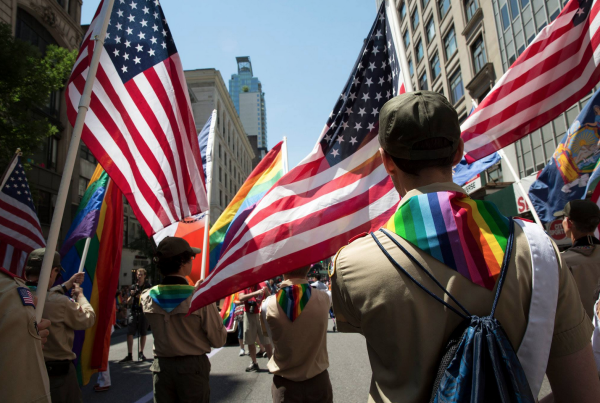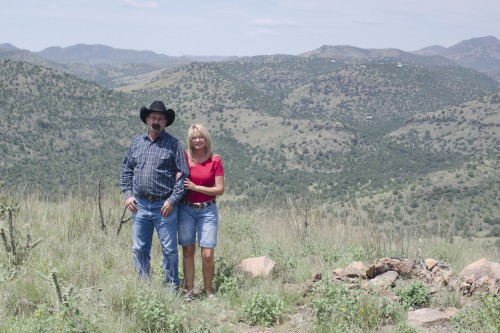This story originally appeared on Houston Public Media.
It’s scene that’s a nightmare for first responders. A train has left the tracks. Tanker cars have piled on top of one another. Two tankers are full of a flammable liquid. One’s on fire, the other’s leaking. A dozen firefighters are spraying the cars with water and foam.
“It’s hot. It’s hot. It’s very hot,” says firefighter Adrian Munoz, a volunteer for the Alvin Fire Department. “It was awesome. It was a great experience.”
A great learning experience. Because this isn’t real, it’s all happening on the outskirts of the Texas A & M campus at a place called Disaster City. Dozens of firefighters from around Texas and other states are learning techniques for fighting fires and rescuing people.
Disaster City is like an amusement park where instead of rides, there are catastrophes but where nobody is supposed to get hurt, even though the smoke and flames are real. Golf carts are used to take visitors on tours. The route goes past a parking garage that’s collapsed, a refinery that’s on fire, and the train that has derailed.
Near the rail accident is a tent where the lecture part of the class is held. The tent has a big white sign with red letters that say “Crude by Rail.” It’s a new program A&M just started a few weeks ago.
“We built this project because there is so much interest out there and there’s so many people wanting a rail class,” says Dennis St. John, a senior director of these firefighting classes.
Why all the interest? We duck under the tent where students are listening to an instructor, Mike Hunt.
“The majority of us have railroads coming through our communities. And crude is really getting to be a commodity that’s going all over the country because of the boom in the oil business,” Hunt tells a group of students.
Hunt is talking about how the United States is producing so much oil now in places like North Dakota and Texas that there aren’t enough pipelines to get it to refineries along the Gulf Coast. So it’s coming by rail.
Hundreds of tank cars every week carry crude through Houston, according to state data. But to get to Houston’s refineries, the trains have to pass through much smaller communities. The kind of towns most of these firefighters are from.
“You get a call out in the middle of the night and they say there’s a train derailment,” instructor Hunt tells the class. “What are some of the first things you’re going to do? You’re gonna call for mutual aid.”
They may need to call for help because containing crude fires and spills can a big challenge for a small town department. Heightening the safety concern is the type of crude many of the tankers carry. The crude coming from North Dakota is a lighter variety that can burn more easily and has been involved in fiery accidents this year in Illinois and West Virginia.
Community activists have warned that not nearly enough is being done in Texas to prepare. City of Houston officials refused our multiple requests for interviews. But one major rail line, BNSF, says it’s training firefighters in communities along crude-by-rail routes and is staging specialized equipment at spots including in Houston and north of Austin.
A&M’s Dennis St. John says that’s all good but that crude isn’t uniquely dangerous.
“When they have an incident it’s big. So there’s a lot more crude being moved by rail so there’s lots more incidents. But as far as dealing with it and the hazards, it’s not worse than any other material,” St. John told News 88.7.
The firefighter from Alvin, Adrian Munoz, says they’ve already had one “real” incident in his town involving a train hauling crude but it was only the engine car that caught fire.
“Anything to prepare us for that, luckily for us it was just the engine that was on fire, but if it had gotten out of hand, this right here properly trains you for that,” said Munoz.


